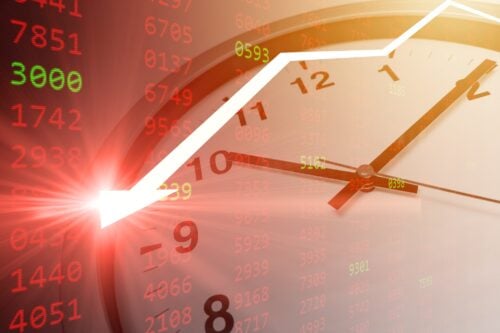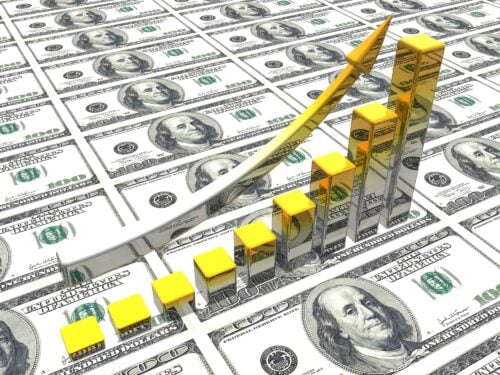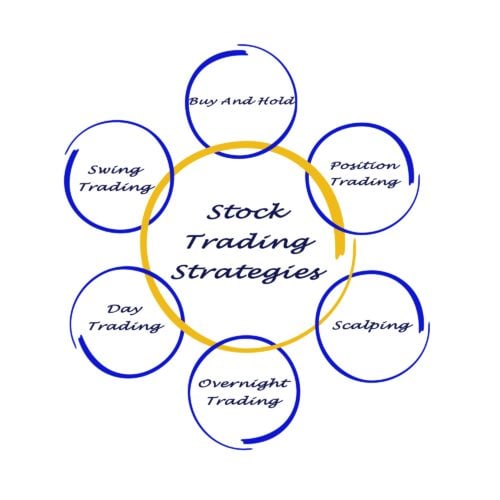The stock market has different times of day when different things happen; one crucial time frame is known as the power hour. But what is power hour, and how does it work in the stock market? Let’s take a closer look.
What Is the Stock Market Power Hour?
The stock market power hour refers to the period during the day when trading volume tends to be at its highest.
During this time, traders flood the markets with orders to capitalize on opportunities that may arise during the high volume period.
Some investors and traders see the stock market power hour as a prime time to make profitable trades or investments, while others consider it too risky.

There is no official definition of the power hour’s specific timing. However, usually, it is within the morning power hour and pre-close power hour.
Morning power hour begins from 9:30 to 10:30 am, and it’s generally considered one of the best times for trading power hour stocks.
Pre-close power hour occurs between 3 and 4 pm, which is the last hour of the trading day.
This is the period when stocks typically experience their biggest price fluctuations.
How Does Stock Market Power Hour Work?
The stock market power hour can be used as a trading strategy to increase profits by taking advantage of short-term market price patterns.
This technique involves setting a specific period, usually around one hour, during which all trades must be placed and then systematically placing buy or sell orders for stocks at regular intervals.
One of the key factors that can influence the success of a stock market power hour is volatility in the markets.
When stock price movements are very large and unpredictable, executing trades during this time may be more challenging.

In these cases, you may need to adjust some of your parameters, such as increasing or decreasing the time you spend in your power hour or the frequency and size of the trades you place.
Additionally, having a solid understanding of how different market conditions affect price movements is critical for success.
For example, there has been a lot of negative news about a particular stock in recent weeks.
In that case, making successful buy or sell orders during your power hour may be more challenging since the stock may be more likely to experience sudden surges or declines in value.
What Is the Best Day to Buy Stocks?
The best day to buy stocks is said to be Monday, which is often considered the “Monday effect.”
This refers to the tendency for stocks to perform better on Mondays than on any other day of the week.
It is likely due to investors and traders having more confidence in the markets when they begin their trading week, resulting in more liquidity and higher volumes, and traders who hold their positions over the weekend and are looking to sell on Monday.
What Is the Best Day to Sell Stocks?
The best day to sell stocks is usually Friday.
One reason is that the stock exchanges typically close earlier on Fridays, giving investors less time to react to sudden drops or surges in stock prices.

Additionally, many investors wait until the end of the week to make their final decisions about selling stocks, leading to lower trading volumes and potentially higher prices.
Although Friday has traditionally been considered the best day to sell stocks, there are other factors that investors should consider when making this decision.
For example, market volatility can be high on Fridays due to the potential for large news events or earnings reports that may affect stock prices.
What Are the Trading Strategies During Power Hour?
Scalping is one of the most common trading strategies during power hours, which involves making numerous small trades to capture small profits from each trade.
This strategy can be highly effective for traders with the skills and patience to make many small trades.
Still, it is also very risky, as even a tiny change in the market conditions or price movements can result in considerable losses and a big hit to your trading capital.
Some traders use automated trading software that trades on their behalf using a scalping strategy, while others prefer to make the trades manually.
Next is day trading, which refers to buying and selling a particular stock within the same day.

The goal of day traders is to make as much money as possible by buying and selling stocks throughout the day.
Last is swing trading, which involves buying and selling positions that last over a few days to a few weeks, taking advantage of price movements within longer time frames.
Swing traders often use technical analysis tools, such as moving averages or trend lines, along with fundamental indicators, such as volume or economic data, to help them identify long-term entry and exit points.
Regardless of the trading strategy used, traders can gain significant profits during power hours if they are skilled at identifying entry and exit points in volatile markets.
However, the increased volatility also increases risks, so new traders must master risk management skills before attempting to trade during power hours.
Should You Do Power Hour Trading?
Although power hour stock trading is a popular way to trade, there isn’t a definite answer as to whether or not it’s right for you.
It’s designed for active traders looking for a high-intensity, short-term approach to trading.
Although many trades use this method, it can be risky and requires careful analysis of charts and market conditions. Some traders swear by it, but others find it leads to bad habits and subpar performance.
Ultimately, only you can decide if this type of trading suits your needs and risk tolerance.
Final Thoughts
The stock market power hour is a popular time for traders to capitalize on potential opportunities.
However, it’s important to remember that the increased volume during this period can also lead to more volatile conditions.
As such, it’s critical to have a solid plan before entering any trades during the power hour.


 Tags:
Tags:










